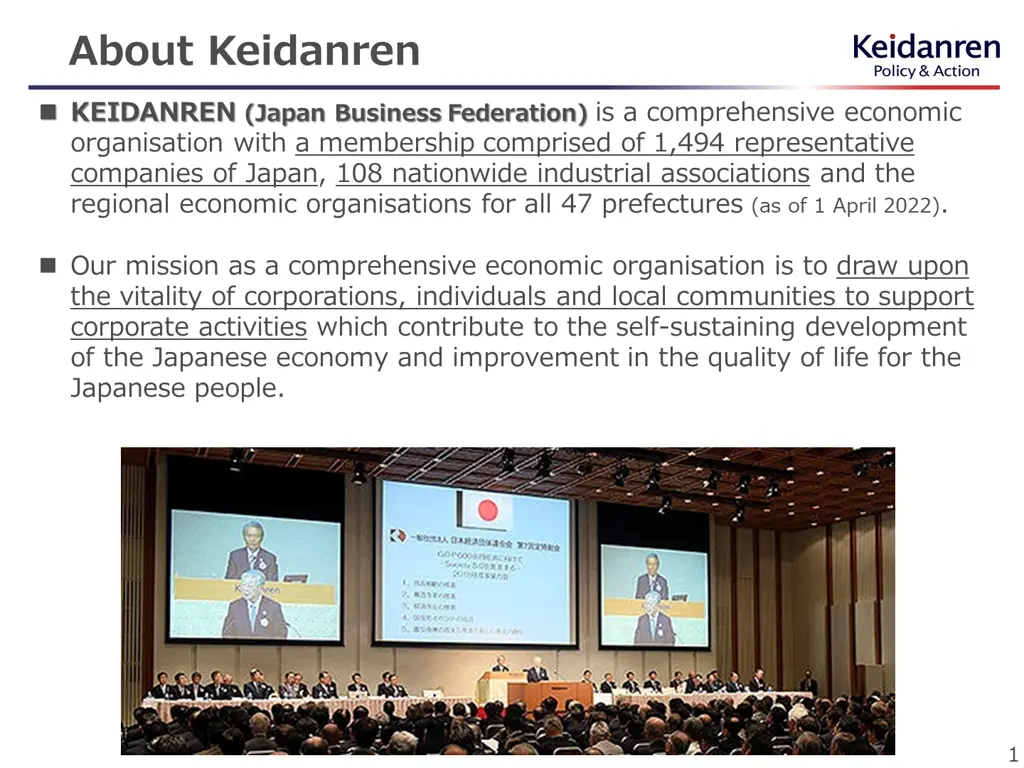Society 5.0 - Co-creating the Future
The concept of Society 5.0 for SDGs in this informative presentation by NAKAJIMA Koh, Deputy Director at Keidanren (Japan Business Federation). Discover how technological advancements and digital transformation are shaping the future of society, and the role of social partners in creating a data-driven society for the well-being of people.
Download Presentation

Please find below an Image/Link to download the presentation.
The content on the website is provided AS IS for your information and personal use only. It may not be sold, licensed, or shared on other websites without obtaining consent from the author.If you encounter any issues during the download, it is possible that the publisher has removed the file from their server.
You are allowed to download the files provided on this website for personal or commercial use, subject to the condition that they are used lawfully. All files are the property of their respective owners.
The content on the website is provided AS IS for your information and personal use only. It may not be sold, licensed, or shared on other websites without obtaining consent from the author.
E N D
Presentation Transcript
Society 5.0 - Co-creating the future 23 February 2023 NAKAJIMA Koh Deputy Director, Industrial Technology Bureau Keidanren (Japan Business Federation)
About Keidanren KEIDANREN (Japan Business Federation) is a comprehensive economic organisation with a membership comprised of 1,494 representative companies of Japan, 108 nationwide industrial associations and the regional economic organisations for all 47 prefectures (as of 1 April 2022). Our mission as a comprehensive economic organisation is to draw upon the vitality of corporations, individuals and local communities to support corporate activities which contribute to the self-sustaining development of the Japanese economy and improvement in the quality of life for the Japanese people. 1
Todays Contents Chapter 1: Concept of Society 5.0 for SDGs Chapter 2: To Create a Data-Driven Society Chapter 3: For the Well-being of People Chapter 4: The Role of Social Partners 2
Chapter 1 Concept of Society 5.0 for SDGs - Theory and Application 3
Background: Great Tide of Change Technological change The world is facing an even greater tide of change against a backdrop of rapidly advancing innovation in digital technologies such as AI, the Internet of Things (IoT), robotics, and blockchains, as well as biotechnologies. Economic and geo-political change The world economy s centre of gravity will shift from the West to Asia. While some countries are facing rapid ageing of the population amid extremely low birthrate, the global population is growing explosively. Change in mindset Problems such as global environmental issues and social disparity are worsening, and in 2015 the United Nations adopted SDGs aimed at addressing these issues. Every change brings opportunities as well. Imagination is the key to shaping the future. 4
Development of Human Society To date, humankind has lived in four types of society: Hunting Agrarian Industrial Information Digital transformation heralds a fifth stage. 5
Digital Transformation Digital transformation will dramatically alter many aspects of society, including private lives, public administration, industrial structure, and employment. Utilisation of data and AI will open up new possibilities. The important question is what to use these technologies for. Digital transformation : Advances in digital technology and data utilisation drastically changes aspects of society including private lives, public administration, industrial structure, and employment. IoT means that every "thing" is connected to the Internet. Improved technologies for sensing precise data from physical real world will enable appropriate data to be gathered in real time and deployed in cyberspace. One essential aspect of AI can be viewed as distribution and commoditisation of abilities. AI exerts its capabilities not only in cyberspace, but also in physical real world via robots. Distributed ledger technologies such as blockchains do much to improve transaction efficiency and traceability. IoT AI Robotics Distributed Ledger Technology 6
The Nature of Society 5.0 Digital technologies and data should be utilised to create a society where people lead diverse lifestyles and pursue well- being in their own ways. In the future, humans will require imagination to change the world and creativity to materialise their ideas. Society 5.0 will be a Creative Society. 7
B20 Tokyo Summit (14-15 March 2019) - Society 5.0 for SDGs, our future society to create together - 8
Blueprint of Society 5.0 for SDGs Aiming to resolve social issues in harmony with nature, Society 5.0 will contribute to delivering on United Nations SDGs. The two reforms share a common direction. Society 5.0 Cities and Regions Energy Disaster Prevention Healthcare Agriculture and Food Logistics Manufacturing and Services Finance Public Services Source: http://www.unic.or.jp/activities/economic_social_development/sustainable_development/ 2030agenda/sdgs_logo/ 9
Cities and Regions Data will be shared to facilitate smarter solutions. Decentralised communities will be created in suburbs and rural areas. Such developments will enable diverse lifestyles and create a society where diversity is respected. 10
Energy Reliable energy will be available to anyone. Clean and sustainable energy will be supplied. 2 Decentralised micro grids will be developed with local conditions. 3 11
Disaster Prevention and Mitigation Sharing disaster information across organisations will facilitate swift responses to disasters. Digital technologies will be used for disaster mitigation. Medical services will be maintained even in the event of disasters. 12
Healthcare (health, medicine, and nursing) New approaches will provide care tailored to individual health at the preventive stage. Individuals will use and manage life-stage data on their own initiative. 2 13
Agriculture and Food Full use will be made of cutting-edge technologies. Data and technologies will also be used to optimise the food value chain (FVC). Diverse players including private corporations, youth, and agritech ventures will participate. 14
Logistics Players will optimise entire supply chains by sharing data on procurement, production, transportation, and sales. Most work substitutable by autonomous driving, drones, and robots will be automated. Diverse customer needs will be identified to realise logistics that create new value. 15
Manufacturing and Services Distribution of abilities will enable individuals and small companies to provide high-level goods and services. Systems will be established to enable consumers to easily and affordably make one-of-a-kind items. Business models will be based on services, not hardware. 16
Finance Digital transformation will make available diverse, custom-made financial services. Financial systems will allocate funds efficiently and effectively across society. Improved access to financial services will contribute to economic independence and greater income equality. 17
Public Services By quickly sharing data among diverse actors, they will provide more creative public services. Public bodies will make timely and appropriate preparations and provide necessary services. Safety nets established by governments will enable anyone to tackle a variety of challenges with security. 18
Chapter 2 To Create a Data-Driven Society - Regulatory Reform, Data, and Cyber Security, etc. 19
Basic Approach In the ideal society in 2025, everyone is confident that we have entered a new era where we can feel the advent of Society 5.0. With a view to Society 5.0, the Digital Principles need to permeate all corners of society. 2025 Expo 2025 Osaka, Kansai, Japan 2022 20 20
Towards a Digital/Regulatory Reform A detailed roadmap involving the following STEPS 1 3 needs to be implemented in all areas. Building a digital technology- oriented framework Embed a scheme that allows government to autonomously keep pace with cutting-edge technologies (shift to goal-based regulations, establish a digital legislation bureau, consider the introduction of a monitoring organisation) 03 Developing new institutions and infrastructure Develop institutional frameworks for safety standards, etc. regarding cutting-edge technologies Compile and disclose data for semi-public areas Link various data to My number Introduce user-friendly public service IDs 02 Comprehensive review of existing regulations and a package of digital technology-related law amendments Transform regulations that do not befit to Society 5.0 Achieve real "end-to-end digital execution, with no single paper intervention in all procedures 01 21
Keidanrens Basic Stance on Data-Flow Policy (1) As revealed by the corona disaster, data utilisation in Japan is still in progress. In addition to the immediate issues such as the digitalisation of administration and the development of a data distribution infrastructure promoted by the Digital Agency, fundamental issues such as the ideal state of rights related to data and the balance between the protection and distribution of cross-border data should be confronted. Accordingly, it is necessary to realise trustworthy free data flow under the concept of DFFT (Data Free Flow with Trust). In order to maximise the value of data towards the realisation of Society 5.0, it is important to promote the free flow of data across borders under the DFFT concept. 22
Keidanrens Basic Stance on Data-Flow Policy (2) In addition to the consistent development of rules and infrastructure, it is essential to understand the entity providing the data. In order to expedite data utilisation, it is necessary to flexibly respond to changes in the environment through repeated trial and error, rather than seeking perfection from the beginning, on the premise of ensuring security and privacy. The government should deliver a message directly to the public about data utilisation. The business community will accelerate the development and implementation of new products and services through the utilisation of data to present concrete convenience and consumer value in a visible manner, thereby contributing to understanding and earning trust in data utilisation. 23
What is DFFT (Data Free Flow with Trust) in the first place? PM ABE Shinzo 23 January 2019, World Economic Forum Annual Meeting We must, on one hand, be able to put our personal data and data embodying intellectual property, national security intelligence, and so on, under careful protection, while on the other hand, we must enable the free flow of medical, industrial, traffic and other most useful, non-personal, anonymous data to see no borders, repeat, no borders. The regime we must build is one for D.F.F.T., Data Free Flow with Trust--non-personal data, needless to say. 24
October 2022 In conjunction with the advance of digital transformation (DX) and changes in social and economic activity brought about by the COVID- 19 pandemic, cyberspace and physical spaces are merging, not only in industries, but throughout society as a whole. At the same time, damage from cyberattacks is impinging on physical spaces, and there are endless examples of huge impacts on business activities and people s lives. Cyberattacks via supply chains such as those targeting business partners and overseas subsidiaries are also on the rise. Moreover, as heightened geopolitical tensions extend into cyberspace, cybersecurity is becoming a crucial domain for national security. Under these circumstances, from the perspectives of creating value and building value chains aimed at realising Society 5.0 for SDGs, as well as managing risk, it is no exaggeration to say that effective cybersecurity measures are now a key management priority for all companies. All businesses will implement cybersecurity measures and contribute to making cyberspace safe and secure. To this end, business leaders pledge to address the following points: 25
Declaration of Keidanren Cyber Security Management 2.0 Recognise Cybersecurity as a Management Issue Recognise Cybersecurity as a Management Issue Enhance their own understanding of the latest cybersecurity circumstances and actively engage in management by positioning cybersecurityspendingasaninvestmentessentialtopromotingDX. Take responsibility themselves for cybersecurity measures while recognizing that enhancing cybersecurity throughout the entire supply chainisacriticalmanagementissue,addressingrisksassociatedwithdigitalization,andexercisingleadership. Develop Management Policies and Declare Intentions Develop Management Policies and Declare Intentions Developmanagementpoliciesandbusinesscontinuityplansaimedatpromptrecoveryfromsecurityincidentswhileprioritizingdetection, response,andrecoveryinadditiontoidentifying andprotectingagainstrisks. Take the lead in declaring companies intentions to internal and external stakeholders and make every effort to voluntarily disclose recognisedrisks,andmeasurestodealwiththem,incorporatereporting. Build Internal and External Systems and Implement Security Measures Build Internal and External Systems and Implement Security Measures Ensure sufficient resources including budgets and personnel, establish internal systems, and take necessary human, technical, and physicalmeasures. Develop human resources and conduct training required for those at every level, including the management, corporate planning staff, technicalspecialists,andotheremployees. Managecybersecuritythroughoutdomesticandinternationalsupplychains,includingbusinesspartnersandoutsourcingcontractors,by utilizingguidelinesandframeworksforcybersecuritymeasuresandcooperatingwithgovernmentsupportprogramsforsuchmeasures. Contribute to Widespread Use of Cybersafe Products, Systems, and Services Contribute to Widespread Use of Cybersafe Products, Systems, and Services Manage cybersecurity across the full spectrum of corporate activity, including development, design, production, and supply of products, systems,andservices. Contribute to Building Safe and Secure Ecosystems Contribute to Building Safe and Secure Ecosystems Collaborate with relevant government agencies, organizations, industry associations, and other bodies to actively share information, engageindialogue,andbuildhumannetworks,bothinJapanandinternationally. Contribute to reinforcement of cybersecurity in the entire supply chain and throughout society by raising awareness of measures taken onthebasisofsuchinformation. 26
Chapter 3 For the Well-being of People 27
Workstyle in Society 5.0 Workstyle changes according to changes in society. Society 3.0 Industrial Society Society 4.0 Information Society Society 5.0 Creative Society Characteristics of Information Society (Society 4.0) will be strengthened Routine work will be substituted by AI and robots Organisations and human resources should be AI- Ready It will be required to meet diverse needs in society Diverse imagination and creativity to materialise it will create values Labour-saving, automation, remote control by ICT Shift to software and services Rapid technological innovation and change in issues Rapid change in required skills Rapid increase in the amount of knowledge and information, open innovation Disruptive innovation, denial of traditional knowledge and experience Physical labour with machines and equipment Standardised and manualised work Homogeneous production Work hours directly linked to production Skills obtained by experience Kaizen on site Hierarchical organisations 28
Human Resources in Society 5.0 As most of routine work will be substituted by AI and robots, requirements for human resources will be different. Those who can find and solve issues in use of AI etc. will be needed. Leaders indispensable. who can manage teams with diversity will also be Those who can solve issues on their own making use of AI Those who dare to try fundamental reform of social system AI-Ready Those who can demonstrate leadership in teams with diversity Diversity 29
What Japan Should Aim For In order to realise Society 5.0, Japan should aim for a successful platform that has led digital innovation and included diversity. People with diverse backgrounds find opportunities in Japan for success. Digitalisation Diversity The AI x data make the most of people who prepare a system for change AI-Ready Everywhere in Japan people with diverse backgrounds take on the challenge of changing society one after another Inclusion of diversity Japan as a platform for success A variety of people take on various challenges in Japan and grasp opportunities for success New values are created from Japan one after another, and through this we will realise Society 5.0 30
Take advantage of strengths and turn challenges into opportunities Having experienced a variety of social issues to date, Japan can become an advanced problem-solving country (Lead by examples). Should lead the international standardisation of "Society 5.0 for SDGs". Falling birthrate, aging population, local decline, fiscal deterioration, energy problems, etc. Scattered issues History that suddenly changed society Imagination in person to solve the problem Ability to incorporate and develop new things into culture and language Overwhelming catch-up ability, spirit to keep learning Harnessing Japan's strengths Opportunity to lead problem solving Society5.0 for Worldwide spread of "Society 5.0 for SDGs Leading platform and international standardisation Actual system development and operation 31
Chapter 4 The Role of Social Partners 32
Towards Industrial Relations That Co-create the Future Amid drastic changes in the environment surrounding workers and companies, it is important to invest in people through wage increase, overall improvement of working conditions, human resource development, etc. It is particularly necessary to make steady efforts to enhance engagement and implement various measures based on workers wishes and needs in employment for overall improvement of working conditions and human resource development to support the growth and performance of diverse workers. Cooperation by workers and unions as important stakeholders is essential Companies need to actively promote labor-management communication at different levels and through various channels. Based on good and stable industrial relations, many companies engage in discussions on broad-ranging issues about companies and workers each spring or at regular intervals. Other venues shall be created for both sides to discuss throughout the year issues that take time to consider and implement, such as wage policy, overall improvement of working conditions, and the expansion of human resource development measures. Labour-management negotiations in spring 2023 amid price increases, a situation significantly different from recent years Critical juncture to be litmus test for industrial relations in Japan Labour and management not adversaries but business partners in value co-creation. Keidanren aims at industrial relations that work for resolving Japan s social issues to co-create the future. 33
Conclusion Society 5.0 is not something to come, but something to co-create. Japan, as the originator of Society 5.0, wishes to bring the concept to fruition in partnership with players all over the world. We believe it is our mission to contribute to sustainable global development by sharing problem-solving know- how gained in the process. 35
Thank you for your attention. For further enquiries, please contact: NAKAJIMA Koh (Mr) Deputy Director, Industrial Technology Bureau Keidanren (Japan Business Federation) Tel: +81 (0)3-6741-0642 e-mail: k-nakaji@keidanren.or.jp 36




























